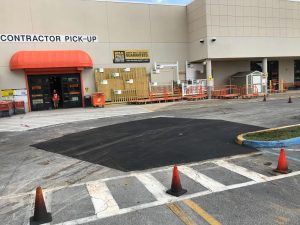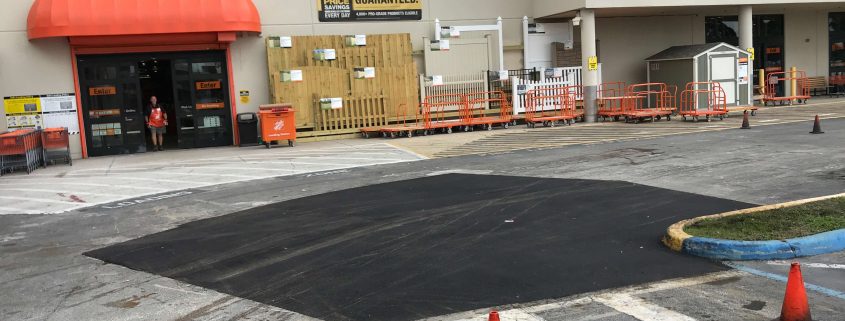Why Parking Lots Crack, and How To Address Asphalt Repairs
 If your contractor installed your asphalt pavement correctly, you were probably pleased with the unbroken, dark, smooth expanse that greeted you. For the first few years, you probably did not need any asphalt repairs at all if you proactively maintained your pavement. Over time, however, you began to notice cracks forming in your pavement, and some of them vary significantly in appearance. You are likely wondering why the cracks have developed, and you are also curious about how your contractor can fix them.
If your contractor installed your asphalt pavement correctly, you were probably pleased with the unbroken, dark, smooth expanse that greeted you. For the first few years, you probably did not need any asphalt repairs at all if you proactively maintained your pavement. Over time, however, you began to notice cracks forming in your pavement, and some of them vary significantly in appearance. You are likely wondering why the cracks have developed, and you are also curious about how your contractor can fix them.
Why Parking Lots Crack, and How To Address Asphalt Repairs
What Are the Different Types of Cracks That Form in Asphalt Paving?
Most asphalt paving companies list seven different types of cracks. These cracks have names that reflect the shape or cause of the specific crack.
• Alligator cracks are sometimes called fatigue cracks. These interconnected cracks look like the scales on a reptile’s back. They are usually caused by destabilized foundations or overloading.
• Block cracks look like large rectangles or squares. The most common cause of block cracking is insufficient water in the asphalt mix, but the problem can result if the pavement becomes excessively dry after installation.
• Edge cracks form near an edge of your pavement, and they run parallel to that edge. Possible causes include intrusive tree roots, an inadequate depth of asphalt paving, drought, or soil subsidence.
• Longitudinal cracks are cracks that run lengthwise on the pavement. Possible causes include errors during the paver operation, poor construction of a joint, and asphalt shrinkage.
• Reflection cracks can appear in asphalt overlays, but they are a rarity in a new pavement. When an overlay is placed over cracks or joints, these can telegraph through and form reflection cracks in the overlay.
• Slippage cracks are crescent-shaped, and they are commonly caused by a failure in the bonding of the surface layer and the layer underneath. It is also possible that the contractor chose the wrong type of asphalt, or that the mix was incorrect.
• Transverse cracks typically cross the centerline, or they at least run perpendicular to it. The two most common causes are the incorrect asphalt grade and the shrinkage of an asphalt layer.
What Asphalt Repairs Are Used to Mend Cracks?
The type of crack is the primary factor in determining the appropriate asphalt repair. Some paving repairs can be made by your parking lot maintenance contractor.
• Asphalt emulsion slurry seals are often used to repair edge cracking.
• An asphalt repair method known as patching is a possible solution for slippage cracking, some instances of reflection cracking, alligator cracking, and some instances of longitudinal cracking. Patching is perhaps better-known as a method of pothole repair.
• Crack sealing is a common parking lot maintenance procedure. It is a possible solution for some instances of block cracking, transverse cracking, longitudinal cracking, and reflection cracking.
• Asphalt resurfacing, or the installation of an asphalt overlay, is sometimes classified as asphalt maintenance, but it is sometimes considered in the category of paving repairs. Depending on the severity and cause, resurfacing can sometimes be a viable solution to widespread reflection cracking, severe transverse cracking, block cracking, or longitudinal cracking.
How Quickly Should I Request Asphalt Repairs?
Cracks are bad news for asphalt pavements. Openings in the pavement give water a path to enter the structure, reach the base, and inflict severe damage on the base and subbase. Therefore, you should submit a request for crack repairs immediately.
Contact Asphalt Care Services Today
Asphalt Care Services can build, repair, or maintain any asphalt paving surface, and we are known for providing exemplary work. Our services include asphalt patching, crack repairs, sealcoating, asphalt paving, speed bump installation, traffic signage, bollard installation, parking lot striping, bumper block installation, and thermoplastic line striping. Request your free quote today by emailing us at [email protected], completing the online form, or calling 772-888-2840.




